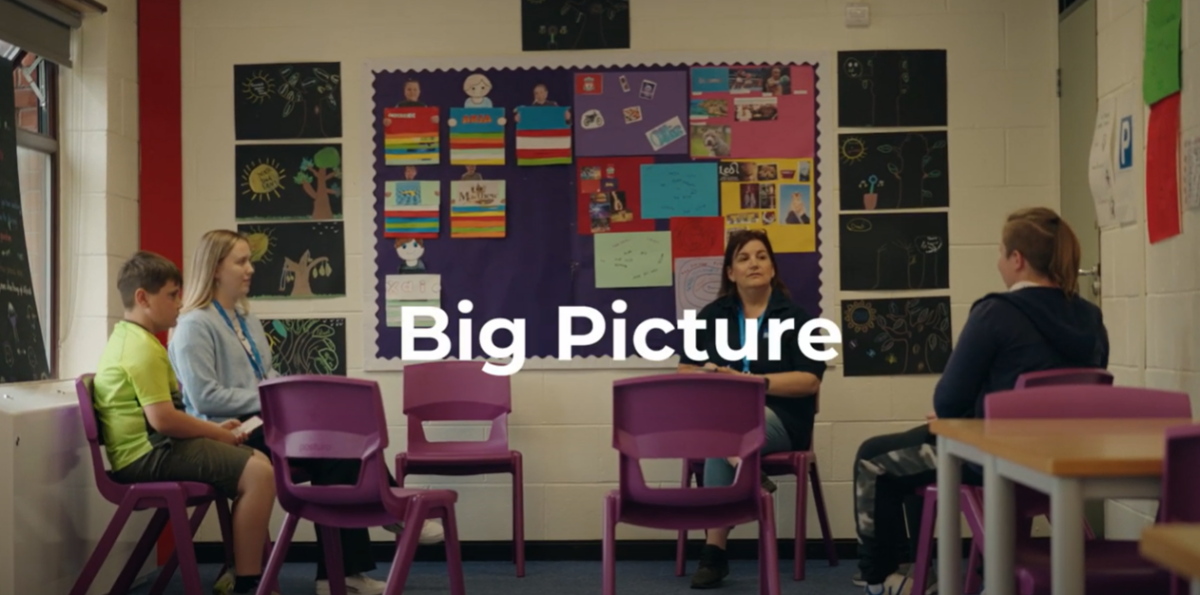Why Upskilling Should Be The Cornerstone of Your CSR Strategy

Among the various approaches to Corporate Social Responsibility (CSR), upskilling the younger generation stands out as one of the most powerful and transformative strategies.
CSR is more than just a buzzword – it’s a crucial aspect of how companies define their role in society through their actions. And while every industry is undergoing rapid transformation and the need for a skilled workforce is becoming more critical than ever, upskilling the young generation is emerging as a key pillar of a forward-thinking CSR strategy.
Why? Because by investing in the education and development of the future workforce, companies can ensure their CSR efforts have a lasting, tangible impact, going beyond words to create meaningful change in both communities and industries. All while future-proofing their operations.
How does upskilling contribute to the 5 key components of CSR?
Environmental Responsibility
As we move towards a greener future, companies need a workforce that’s skilled in sustainability practices. By integrating green skills training into upskilling programs, businesses can ensure their future employees are ready to take on the challenges of reducing carbon footprints, managing waste, and conserving resources. This approach embeds environmental responsibility into the very fabric of the workforce, making it a natural part of daily operations rather than an afterthought.
Social Responsibility
Upskilling offers a powerful tool for social equity. By providing young people, especially those from underserved communities, with access to quality training and education, companies can bridge the gap in employment opportunities. This reduces youth unemployment and promotes social mobility, allowing more individuals to participate in the economy and improve their quality of life.
Economic Responsibility
A skilled workforce is the engine of economic growth. Companies that invest in upskilling are effectively contributing to the economic health of their communities by ensuring a steady pipeline of talent capable of driving innovation and productivity. In doing so, they help create jobs, support economic development, and foster long-term prosperity.
Ethical Responsibility
Ethical business practices extend beyond transparency and anti-corruption measures; they include a commitment to fairness and equity. By investing in the education and development of young people, companies demonstrate a strong commitment to ethical responsibility. They ensure that future leaders are equipped with not only the technical skills but also the moral compass needed to navigate the complexities of modern business.
Stakeholder Engagement
Upskilling is a collaborative effort, often involving partnerships with educational institutions, government bodies, and not-for-profits. By engaging with these stakeholders, companies can tailor their upskilling initiatives to meet the needs of the future workforce while also addressing the concerns and expectations of their broader community. This collaborative approach strengthens relationships, enhances reputations, and aligns business goals with societal needs.
How do you embed upskilling in your CSR strategy?
Align with Industry Needs
Start by identifying the skills gaps within your industry and align your upskilling initiatives to address these needs. This ensures that the training provided is relevant and beneficial not only for the individuals but also for the industry as a whole. By focusing on industry-relevant skills, companies can create a more skilled workforce that drives innovation and productivity.
Work with the Innovators
Partner with cutting-edge organisations, educational institutions, and startups that are leading the way in smart upskilling initiatives. Collaborating with innovators allows companies to access the latest training technologies and methodologies, ensuring that the upskilling programs are effective, engaging, and future-focused. These partnerships can also bring fresh perspectives and creative solutions to traditional skills development challenges.
Foster Lifelong Learning
Encourage a culture of continuous learning within your organisation by offering ongoing training and development opportunities. This not only benefits employees by keeping their skills up to date but also ensures that your company stays competitive in a rapidly changing market.
Engage with Local Communities
Extend your upskilling efforts beyond your company by collaborating with local schools, colleges, and community organisations. By investing in the skills development of young people in your community, you can create a positive social impact, reduce unemployment, and build a stronger, more resilient local economy. This approach also strengthens your company’s relationship with the community and enhances your CSR credentials.
Measure and Communicate Impact
Establish clear metrics to track the effectiveness of your upskilling initiatives and regularly report on the outcomes. This not only helps refine your strategy but also demonstrates the tangible impact of your CSR efforts to stakeholders. Transparent communication about the success of your upskilling programs can build trust and inspire others to follow your lead, amplifying the positive effects of your efforts.
Incorporating upskilling into CSR strategies is more than just a smart business decision – it’s a commitment to building a sustainable, equitable, and ethical future. And here’s a final thought – businesses should consider upskilling as a unique opportunity to inspire a culture of innovation within their own organisations. By investing in the skills of the next generation, businesses can cultivate fresh ideas and perspectives that drive both social impact and corporate growth. In this way, upskilling becomes not just a CSR initiative, but a catalyst for long-term innovation and success.
By Amelia Loveday, Head of Partnerships at hundo












Responses